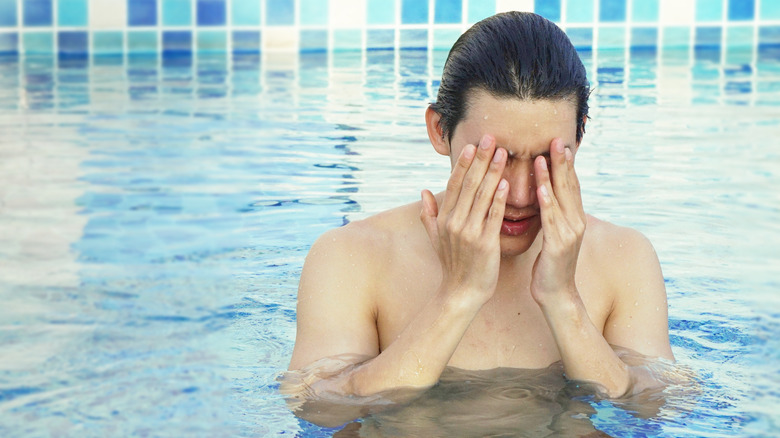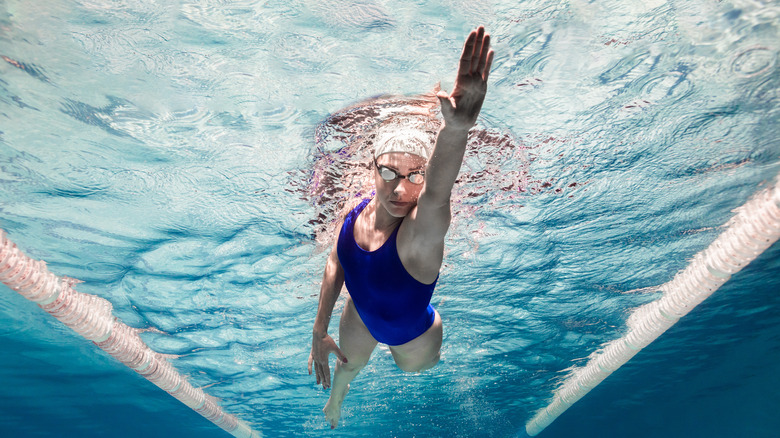Here's What It Means If Swimming Makes You Dizzy
You've taken steps to shake up your workout routine by swapping out some of your hill sprints for laps in the pool. On the one hand, you're feeling great. On the other hand, though, you're finding that you feel dizzy sometimes, either while swimming or once you get out of the pool.
What's the reason for this? Should you be switching up your strokes? Should you be refraining from swimming altogether? Is this a sign of a more serious medical issue?
If swimming has been making you dizzy, you may be experiencing what is commonly known as "post-swim dizziness," more formally known as postural hypotension or orthostatic hypotension (via Mayo Clinic). Feeling dizzy, light-headed or nauseated after a swim is not uncommon; this is a condition that swimmers and triathletes have to deal with from time to time. Postural hypotension will often happen when you get up too quickly from a lying down position when the pressure in your head is low and the pressure in your feet is high.
To help make your post-swim vertigo-free, one way to tackle the problem is to drink lots of water, in order to stay well-hydrated. And if your swim workout is intense, consider mixing in sports drinks, which contain ingredients that can help further balance any fluids or minerals you've lost (via Triradar.com).
How else you can avoid feeling dizzy from swimming
There are a number of other ways you can preemptively prepare your body to keep you from feeling dizzy either during or after your swim.
If you're feeling dizzy during your swim, it could be from excessive head motion. To avoid this, 220 Triathlon recommends that you focus on one line at the bottom of the pool and also concentrate on maintaining good posture. Reducing your head movement should make you feel better — and also help you move faster. If you're swimming in open water and begin to feel nauseated, focus on something fixed like the horizon. Putting your focus on something still can help settle the brain.
Putting in ear plugs before getting into the water is also a good defense against dizziness. This will also help you avoid "swimmer's ear" and prevent infection by keeping the water from getting caught in your ear canal (via eMedicineHealth).
So, if swimming is making you dizzy, no need to throw in the towel just yet. Try one or more of these techniques, and chances are you'll be right back in the swim of things. However, if the dizziness continues, consider consulting your doctor.


